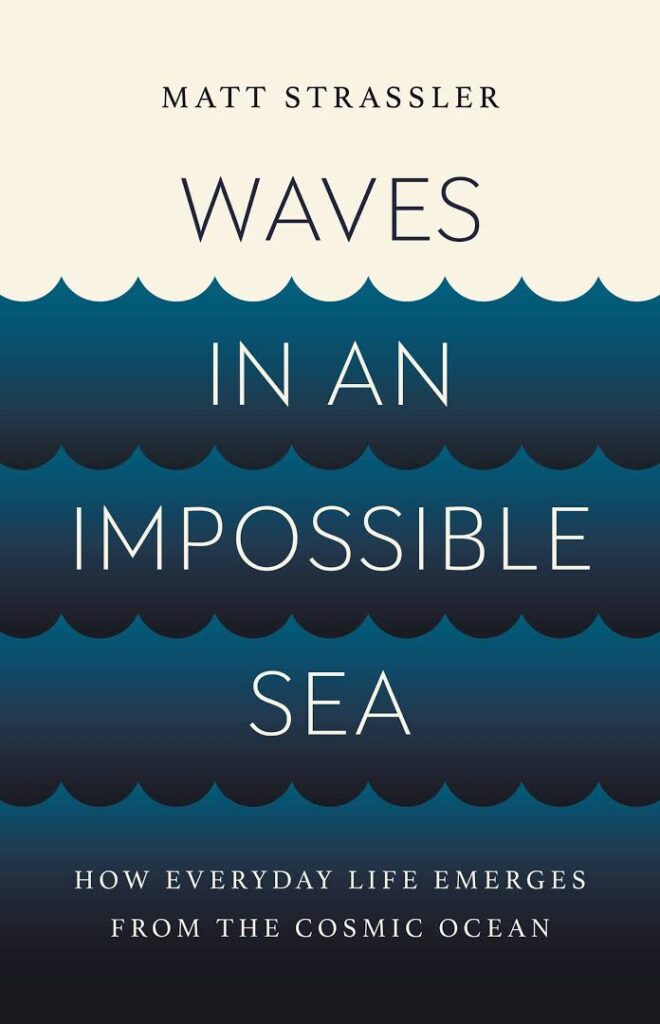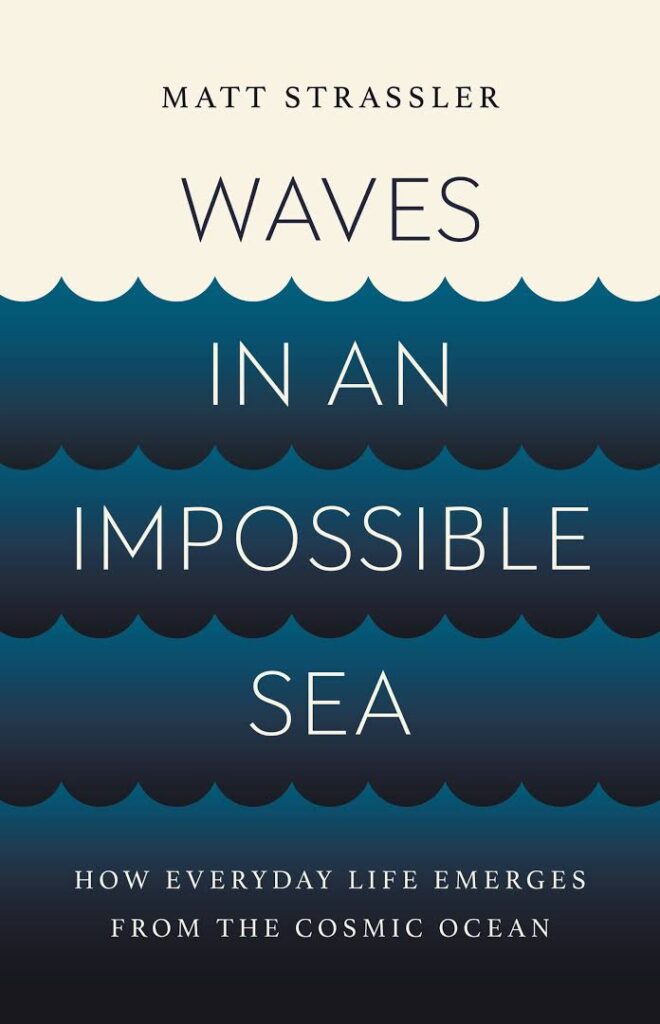On Saturday I gave a lecture, newly minted, on how Einstein is perceived in the public eye, and on how the numerous misconceptions about Einstein affect the way many non-experts believe that science is actually carried out. Doing the research for the lecture involved, among other things, going back to some original sources I’d never read or had only read a long time ago, looking a bit at Einstein’s notebook from the period around 1912 (online here), and re-reading large portions of a wonderful biography of Einstein that I’m afraid was written by a physicist for physicists — and consequently largely unreadable without technical background, but a must-read for anyone who has that background. I refer here to Abram Pais’s famous biography: “Subtle is the Lord…”, whose title refers to Einstein’s famous quip: “Subtle is the Lord, but malicious He is not.” (You can read about the origin of this quip in Pais’s book.)
I also enjoyed tracking down some videos online of various physical effects that Einstein explained, or that he predicted in advance. These included videos (linked below) of
- Brownian motion, the random motion of relatively large particles in a suspension such as milk, which Einstein explained in 1905 as due to the battering of those particles by molecules of water — an observation from which he pointed out that one could calculate the size of molecules [then still in dispute] using just a basic microscope and a stopwatch [to paraphrase Pais].)
- Particles from cosmic ray showers that, traveling near light speed, are able to reach the earth’s surface only because time dilation (an effect of Einstein’s 1905 special relativity that slows the ticking of clocks attached to fast objects) lengthens the time between when they are created and when they decay (i.e. disintegrate into other particles).
- The photo-electric effect, whereby high-intensity high-frequency light can cause electrons to pop out of a metal, but high-intensity low-frequency light cannot. Einstein proposed in 1905 that this might be explained by light being made from packets of energy, “light-quanta” (nowadays called `photons’): he suggested that high-frequency light is made from high-energy packets and low-frequency light is made from low-energy packets, so that low-frequency light, no matter how intense, cannot give the electrons a sufficient kick to get them out of the metal.
- The absorption of light one quantum (i.e. photon) at a time, in accordance with Einstein’s 1905 suggestion; this video shows these quanta exhibit both wave-like and particle-like properties, which Einstein was considering already around 1909.
- Photos (not videos) showing the bending of light by gravity, which Einstein was considering in the 1911-1915 period; these include both the small effect predicted by Einstein on the apparent positions of stars due to the sun’s gravity (the observation of which made Einstein famous among non-scientists in 1919) [however the veracity of the link has been questioned by a commenter so I’ve removed it until the situation is clarified] and the much larger effect of gravitational lensing, whereby a large galaxy or cluster of galaxies can dramatically distort the image of a galaxy or other object that lies far behind it.
Most of these videos and photos are on websites that contain more detailed explanations of the physics involved.
Preparing the lecture also reminded me that my memory is pretty bad. Though I read Pais’s book carefully twenty years ago, I had failed to remember a number of key points. I had forgotten, for instance, that the great physicist Planck, among others, recognized the importance of Einstein’s first relativity paper within just a few months of its appearance in 1905; I had forgotten the brevity of Einstein’s second 1905 paper on relativity, despite having read it before; and I forgot that Einstein in 1917 was perhaps the first to recognize, and be disturbed by, the presence of unpredictability in the early quantum theory of light. There were quite a few other lapses. I do hope I won’t forget these facts a second time.
The lecture wasn’t recorded (at least not with my knowledge or permission), but the positive response gave me confidence that I should give the lecture again at a later date… perhaps in the fall sometime.
Thanks again to the New York City Skeptics for the invitation and the organization of the event! And thanks also to everyone who attended; I very much enjoyed the question and answer session.



14 Responses
Oops! Euler.
Matt, I am not a physicist, but a classicist and the Chief Scientist for an AI company, however, I have been reading Scientific American since I was eight years old (1954). I read Subtle is the Lord years ago and found it engaging and wonderful and filled with beautiful math. Next to the near magic of Euller’s Identity, some of the math in relativity is truly amazing.
Great article!!
Well-said Earl. If you would like another wonderful book that deals with something that, surprisingly, hasn’t been dealt with before: the real history of quantum mechanics. Check out the link:http://press.princeton.edu/titles/10068.html
Matt,
I hope you have a look at Einstein’s paper that still causes some debate today:
Does the Inertia of a Body Depend upon its Energy-Content?
http://www.fourmilab.ch/etexts/einstein/E_mc2/www/
Maybe you could do a blog on the derivation and whether or not it’s still seen correct today.
if you could resurrect an historical physicist to help you/mankind with particle physics theory. who would it be ? einstein, newton, some one else ?
I think the image that you chose to illustrate “the small effect predicted by Einstein on the apparent positions of stars due to the sun’s gravity” is one that the BBC showed in their “Einstein and Eddington” drama starring David Tennant and Andy Serkis. I can remember at the time thinking it grossly exaggerated both the sizes of the star images and the sizes of the deflections. The real star images and deflections were much smaller and more subtle, for instance see http://en.wikipedia.org/wiki/File:1919_eclipse_positive.jpg
Thanks; link removed until further notice. Clearly the image of the sun was not to scale; but you may be right that the whole thing is a BBC concoction. I would be much happier to find a similar modern image-pair, but have not found one; I would have though the effect was large enough to show in a comparison of carefully aligned photos, but perhaps I was naive about that.
I had a class last year on the history of physics where we talked briefly about this measurement. It’s really incredible what they were able to do given the shift. Here is the presentation our teacher gave us:
http://perso.ens-lyon.fr/sergio.ciliberto/Teaching/Cours_physique_experimentale/general_relativity_1.pdf
There are original position tables scatterred throughout the presentation and you’ll find plots comparing positions at pages 10 and 11.
The range of queries investigated by Einstein attest to his incredible genius. Writing a paper recently I came across an article he wrote in 1926 explaining the Tea Leaf Paradox. I won’t go into the details,
suffice to say he identified helical currents as the mechanism by which rivers meander. I imagine he was sitting at his desk one day stirring his tea and as a diversion from more complex relativistic concepts he gave geologists this gift they only fully understood half a decade later.
Einstein also had some patents on quiet refrigerators (though other technology came along first, so these patents never led anywhere).
Still, on this scale, even he doesn’t match Leonardo da Vinci. Lacking Newtonian physics concepts, da Vinci’s guesses were often quite wrong, but nevertheless I find their ingenuity breathtaking…
Newton is the one who amazes me the most. He developed some of the great mathematical methods still used today based on the calculus he invented so he could prove that the laws of physics he discovered also fully explained the motion of the planets he observed through the telescope he perfected using the laws of optics he discovered. I mean, good grief. It’s like he started in a time with almost nothing and by the time he was done he had almost everything.
I need to do some more reading on this… I suspect there is a tendency to overestimate how much Newton had to invent from scratch. This is not to take anything away from his genius, however… just from a desire to understand how history and genius really work.
Wrong. Newton was a genius, no doubt, however he CO-invented calculus with Leibniz (in fact, much of the calculus taught to us is more Leibnizian-calculus, at least in notation, than it is Newtonian-calculus), despite the fact that, unlike Newton, Leibniz never had any formal education in mathematics. Much of the work Newton did in optics, though exemplary, was refuted by the time Maxwell’s work on electromagnetism came along. His laws of motion/gravity, though absolutely brilliant, were fundamentally incomplete (e.g. they couldn’t describe aberrations in the perihelion of mercury; they erroneously supposed absolute space and time) and were eventually supplanted (‘extended’ is perhaps a better verb choice).
It is dubious Newton could have accomplished what he did without fundamental work on axioms developed by Galileo; nor could he do it without the breakthroughs in analytical geometry pioneered by Descartes (not to speak of Cartesian coordinates). Moreover, his magnum opus “Principia Mathematica” had to be amended and altered many times posthumously by great minds like Laplace (perturbation theory) and Lagrange. Newton is undoubtedly one of the greatest minds to ever live but i don’t know if his achievements are more impressive than Einstein’s or, by analogy in a related field, Gauss. In my opinion Einstein was the more creative genius of the two for many reasons already cited by Prof. Strassler, and other reasons too plentiful to explicate here. For one, it seems, calculus would have been invented with or without Newton (not to say the same argument couldn’t be used against Einstein or Maxwell, but I digress).
@xezlec Newton was actually influenced a great deal by Hooke and this has been dealt with by science historians